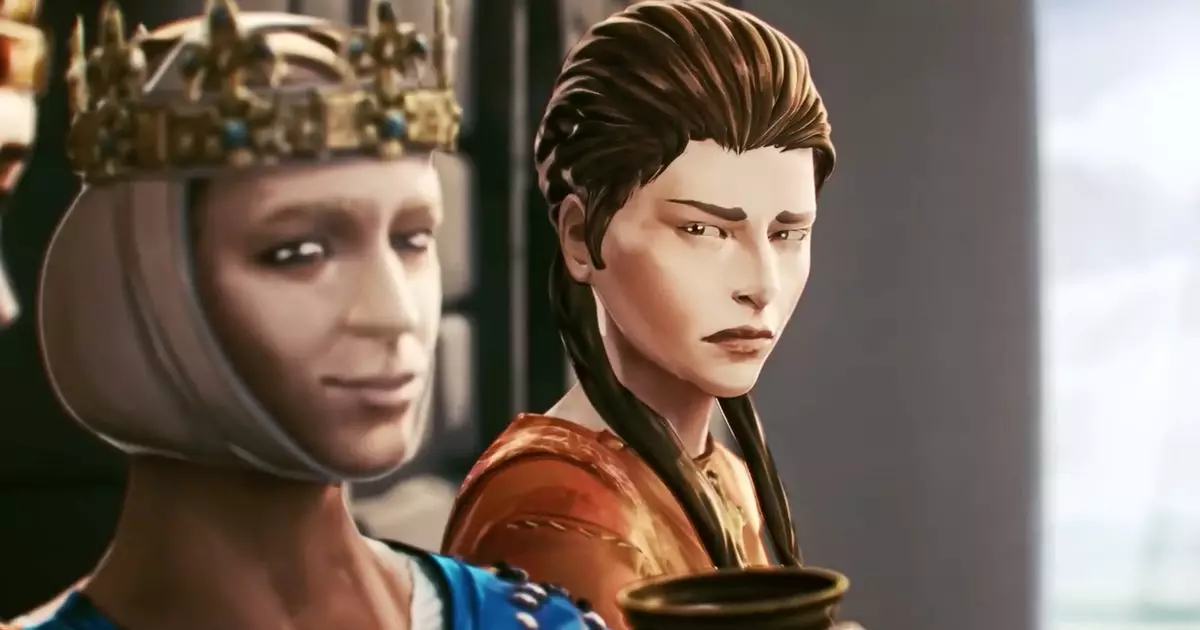This week, Crusader Kings 3 (CK3), the celebrated grand strategy game by Paradox Interactive, made headlines with its announcement of a new player survey. While the phrase “your kingdom, your call” has a whimsical charm, the underlying implications are far more significant. This survey is more than just a set of questions; it is a clarion call for players to voice their opinions and feedback, shaping the future trajectory of a game that captivates millions. As players navigate the intricate tapestry of medieval politics, warfare, and dynastic intrigue, this opportunity to influence design decisions is not something to be ignored.
Rather than merely seeking vague feedback, the survey delves deep into the fabric of the player experience, outlining critical archetypes and preferences that characterize the diverse CK3 community. By doing so, it attempts to crystallize which elements of the game resonate most with its dedicated player base. That said, it prompts a useful but often uncomfortable introspection about how involved players truly want to be in the game’s evolution.
Understanding Player Archetypes
The survey opens with a deceptively simple yet thought-provoking question: “What player archetype fits you best?” This inquiry does not merely categorize players but initiatives a dialogue about their in-game motivations. It juxtaposes two main pillars of gameplay: roleplaying and systemic challenge.
Players who lean into roleplaying might enjoy forging royal dynasties through strategic marriages, while those who prioritize systemic challenges may focus more on military supremacy and economic dominance. The subtle nuances in how players define their enjoyment of CK3 creates a fertile ground for analysis and discussion. It is intriguing to ponder how Paradox might interpret these responses and use them to guide future updates or expansions. What does it mean when a player identifies more with the intricacies of courtly life than the mechanics of warfare?
This question doesn’t just serve as a litmus test for player preference; it also reflects on design philosophy. Are developers likely to prioritize emergent storytelling and personal narratives over the hardcore mechanics of population growth or military strategy? The survey suggests a firm foundation in player engagement, indicating that Paradox is acutely aware of the dual nature of player investment.
Looking Ahead: Themes of Trade and Merchants
In exploring potential directions for CK3, the survey includes a series of questions about themes that could be further integrated into the game. Notably, the inclusion of “trade and merchants” signifies an acknowledgment of the complexities of economic systems during the medieval era. Players are prompted to contemplate aspects such as naval trade, merchant republics, and banking while they take part in this interactive survey.
Trade is a rich vein to mine—not only does it set the stage for emerging politics and societal upheavals, but it also introduces players to the intricate web of alliances and betrayals that accompany commercial endeavors. The opportunity to refine the economics of CK3 speaks to the potential for deeper gameplay mechanics that could elevate the player experience from mere warfare to a multifaceted narrative steeped in the financial maneuvers of the era.
But let’s be clear: trade should not merely serve as a background feature; it must provide players with engaging, active challenges that require strategic foresight. Otherwise, it risks falling into the trap of becoming just another feature with little impact on the overall player experience.
Emerging Storylines and Player Responsibility
As players weigh the potential directions for CK3, one thing is clear—they are not just passive consumers. Players have a vested interest in steering the game toward narratives that resonate with their values and desires. In this light, the act of participating in the survey can be seen as an expression of agency, a chance to mold a living, breathing world that thrives on player investment.
Yet, this raises an essential question: how much accountability should players assume for the direction in which they guide the game? The rich complexities of the medieval landscape suggest that players should not just be participants but also co-creators in the storytelling process. This creates a newfound level of responsibility for the player community, encouraging active engagement rather than mere consumption.
Ultimately, the vibrant interplay between player feedback and game design promises to enrich the Crusader Kings experience. As participants navigate the survey, they’re not just answering questions—they’re shaping their kingdoms and, in turn, illuminating a path toward an even more engaging and dynamic gameplay experience. The future of CK3 is not just in the hands of its developers; it lies in the collective voice of its players.

